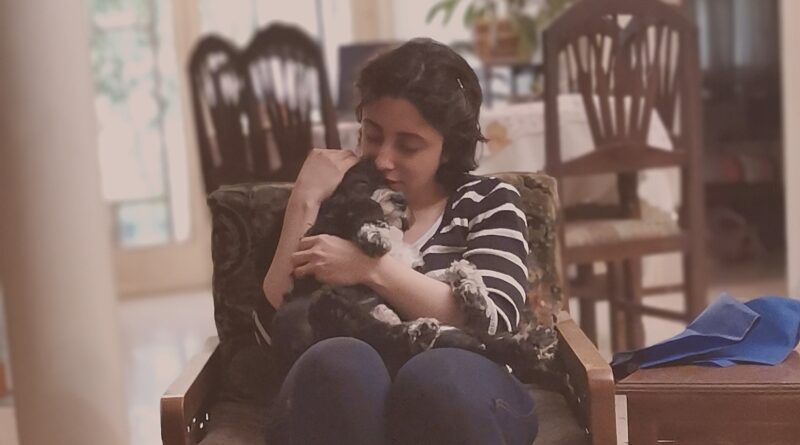Unconditional Love: An Inspiration for Veterinarians, Information Scientists, and All Animal People
Unconditional Love: An Inspiration for Veterinarians, Information Scientists, and All Animal People
Niloofar Solhjoo
Supervet Noel Fitzpatrick and the dog who inspired his work

A couple of weeks ago, Professor Noel Fitzpatrick announced his beloved dog, Keira, had died. Professor Fitzpatrick is a world-leading veterinary surgeon, and TV personality, known as Supervet. Globally recognised for his innovative surgical solutions for animals, he talked about the impact Keira had on his life and work several times. In a tribute to Keira on his Instagram, he said “she shares the most valuable gift in entire world with me, unconditional love.” I know that Kiera’s legacy will continue to inspire everything Professor Fitzpatrick would do for animals and animal guardians.
My research in information behaviour and dogs I have loved
I am a young researcher in information studies. After my undergraduate degree in Library and Information Science, I’ve been studying in the pet health information area, exploring information behavior of pet guardians, and providing health literacy intervention for them. My current PhD research explores everyday pet care and management experiences, focusing on a holistic view of how understanding is built in those experiences and what is experienced as information across different facets of everyday living with companion animals.

The core idea of all my studies emerged from my experience with two dogs who have given me unconditional love and support during my busy life. I grew up with Betty, a mixed shiatzu-terrier dog. She was my constant companion for seventeen years, from my childhood to my twenty-fifth birthday. As a great love comes with a great pain, losing my dog was very hard but would become the inspiration of my future. Living with her made me an information scientist who looks for the paw prints of animals in the information world of humans. Co-existence with companion animals in our houses and cities could bring new perspective in understanding human information behavior which is connected with other forms of life (e.g., plants and animals). It is called a more-than-human approach (posthumanism) in social sciences.

Recently, I am experiencing a mutual guardianship with my new dog, Peter. Our shared life is guiding my PhD research. He sits on my knee while I am video conferencing, writing papers, or doing reports. He knows everything about me and my habits. I understand elements of interactions between Peter and me in our common life. My everyday life is constructed by emotional and embodied interactions with Peter, with social interactions with people who know Peter, and with places and things which give me the knowledge I need to live with and understand Peter. These experiences help me to bring animals more into the study of human information behavior.
Unconditional love as a source of inspiration in LIS
Professor Noel Fitzpatrick said “Keira made him the best he could be.” The love of animal can be a powerful force for veterinarians, information scientists, or anybody to act better in academic and daily life. My special relationship with Betty and Peter has taught me how to blur the boundaries between humans and animals and open new perspectives to explore modes of being and understanding in our world. I am thankful for the dogs in my life. I encourage every scholar from information fields who feel the same way to explore what it means to bring animals into the human information world, and how can information science contribute to “One welfare.”
Cite this article in APA as: Solhjoo, N. (2021, September 22). Unconditional love: An inspiration for veterinarians, information scientists, and all animal people. Information Matters. Vol.1, Issue 9. https://r7q.22f.myftpupload.com/2021/09/unconditional-love-an-inspiration-for-veterinarians-information-scientists-and-all-animal-people/





